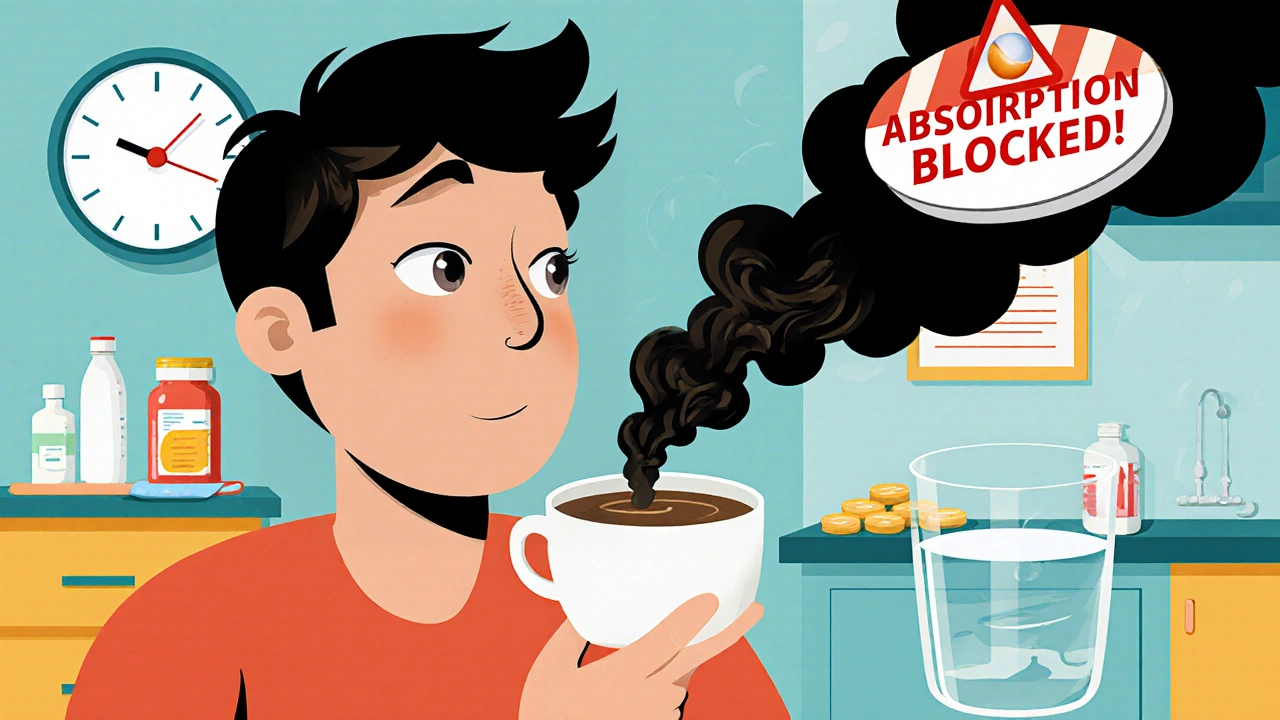Drug Food Interactions: What You Need to Know Before Taking Medication
When you take a pill, it doesn’t just work in a vacuum. What you eat, drink, or even sunbathe in can change how that drug acts in your body. This is called a drug food interaction, a change in how a medication works because of what you consume. Also known as food-drug interaction, it’s not just a footnote in the manual—it’s a real risk that can make your medicine useless or even dangerous. Many men don’t realize that grapefruit juice can stop their blood pressure pill from breaking down properly, or that a high-potassium diet with certain heart meds can spike potassium levels to life-threatening amounts.
Take hyperkalemia, dangerously high potassium in the blood. It’s not a disease on its own—it’s a side effect of combining drugs like ACE inhibitors with potassium-sparing diuretics, especially if you’re eating a lot of bananas, spinach, or salt substitutes. One study found over 1 in 10 men on this combo ended up with potassium levels high enough to need emergency care. And it’s silent—you won’t feel it until your heart starts skipping beats. Then there’s photosensitivity, skin that reacts badly to sunlight because of medication. Antibiotics like tetracycline, diuretics, even some acne drugs can turn a normal day outside into a painful sunburn. You might think you’re just getting too much sun, but it’s your medicine making your skin hypersensitive.
These aren’t rare edge cases. They’re common, predictable, and preventable. The same goes for antibiotics like tetracycline that lose effectiveness if taken with dairy, or antifungal lozenges that won’t work right if you swallow them too fast. Even melatonin, often seen as harmless, can mess with thyroid hormones if taken with certain thyroid meds. You don’t need to memorize every possible combo. But you do need to know the big ones that affect men your age—especially if you’re managing diabetes, high blood pressure, or chronic conditions. The posts below break down exactly which drugs clash with which foods, supplements, or habits, and how to stay safe without overhauling your life. No guesswork. No myths. Just clear, practical info on what to avoid, what to watch for, and how to talk to your doctor about it.
Taking medications with or without food can make the difference between a drug working and failing. Learn which meds need food, which need an empty stomach, and how to get it right every time.

